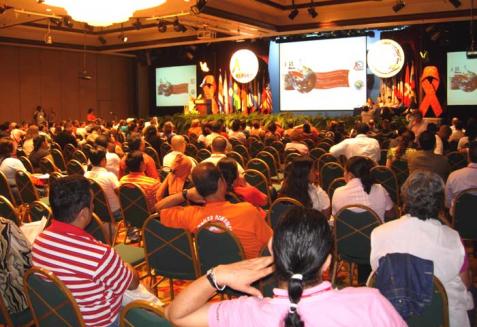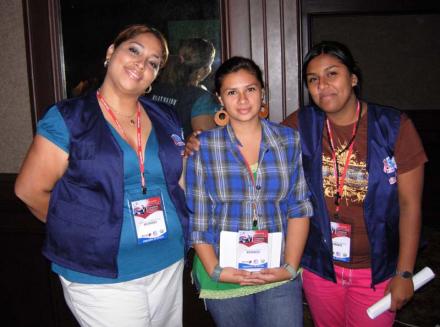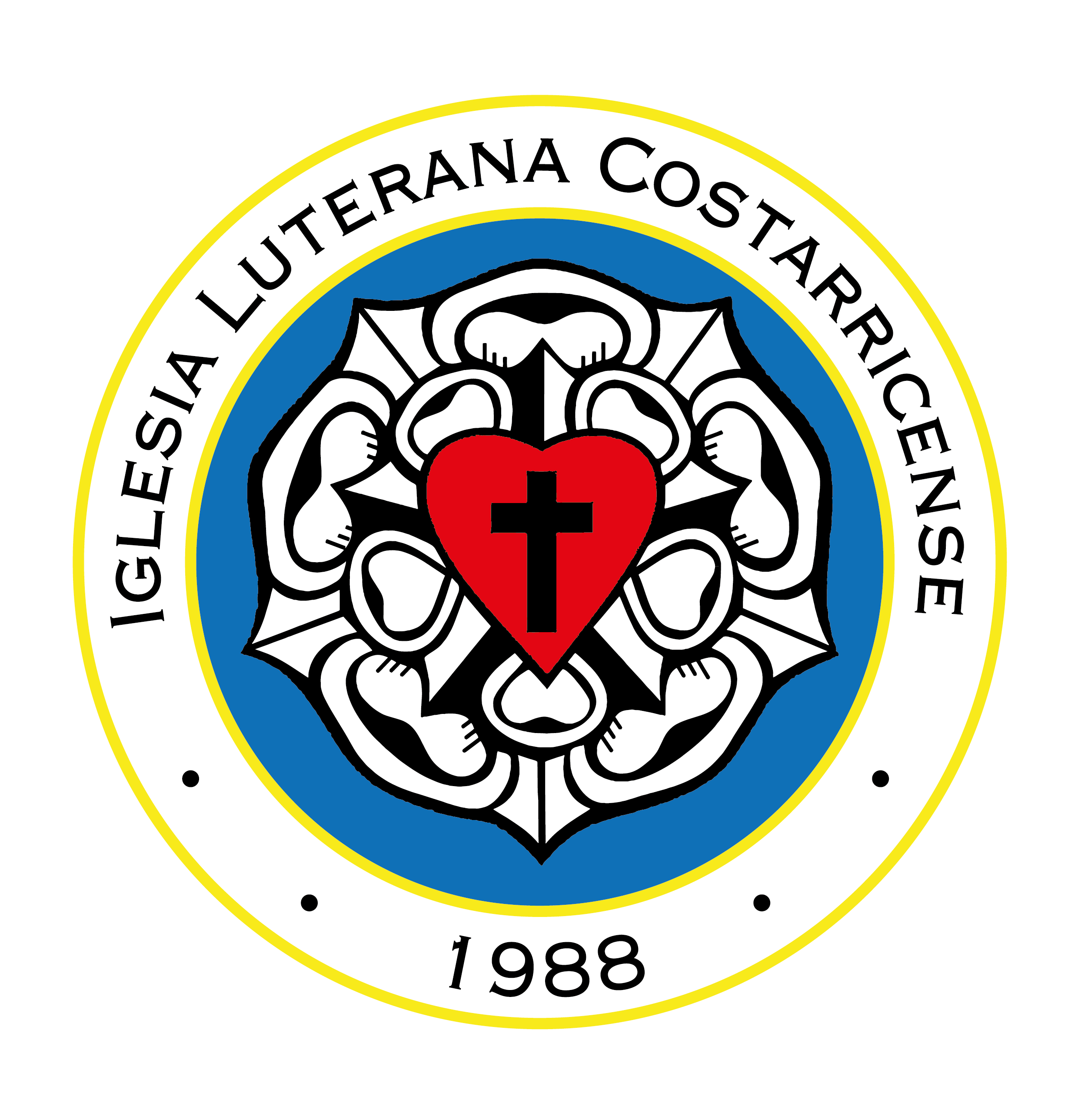 Under the theme, “Youth and HIV: For my Right to Know and Decide,” this Sixth Regional Gathering was inaugurated on March 1, in San Jose, Costa Rica. Its expressed goal is to give young people a protagonistic role in the defense of life, and in the struggle for lives freed of prejudice and discrimination.
Under the theme, “Youth and HIV: For my Right to Know and Decide,” this Sixth Regional Gathering was inaugurated on March 1, in San Jose, Costa Rica. Its expressed goal is to give young people a protagonistic role in the defense of life, and in the struggle for lives freed of prejudice and discrimination.
Nombre de autor: Comunicación y Relaciones
Costa Rica is the honored host for this year's CONCASIDA, an annual Central American congress that brings together representatives of government agencies, international partners, and individuals from civil society, to focus on the common goal of creating an inclusive world.
This time around, CONCASIDA is making a special appeal to young people, challenging them to acquire correct information so that they can use it as a powerful tool in living their sexuality and reproductive rights in a responsible manner.
In her opening remarks to the Sixth Gathering, Mrs. Ana Solano, pointed out, “This event seeks to stimule a greater awareness by young people of the vulnerability in which they find themselves, as that part of the population that has lacked proper sex education, and in which infections are on the rise. We need to analyze the social impact of these isssues on the countries of Central America. “
 The event itself comprises two international meetings, the Sixth Gathering and the Congress, both of which present Costa Rica with a unique platform for dialogue. Not only does it facilitate a more holistic approach to the challenges of HIV and AIDS by making current scientific and critical information available to health workers, persons with HIV, staff of agencies, and the general public, but it lifts these themes to a priority level for government authorities in the region.
The event itself comprises two international meetings, the Sixth Gathering and the Congress, both of which present Costa Rica with a unique platform for dialogue. Not only does it facilitate a more holistic approach to the challenges of HIV and AIDS by making current scientific and critical information available to health workers, persons with HIV, staff of agencies, and the general public, but it lifts these themes to a priority level for government authorities in the region.
Argentinian Lutheran Pastor Lisandro Orlov, a religious leader who has made the cause of creating a more inclusive church his pastoral vocation, observes,
“Stigmatization and discrimination aren't just concepts, but real life experiences that make living with HIV more painful and difficult. The reason why a pastor like myself is involved in the work of HIV, is the church's commitment to human rights and the dignity of all persons. Our approach to HIV is not aimed at converting others, rather it is a process of conversion that starts at the personal level and rises to the institutional level, in order to build a more inclusive church and society.“
The Costa Rican Lutheran Church, as part of its own ministry, has coordinated a range of activities to promote a greater opening and dialogue towards inclusivity. In the framework of this year's regional meetings, it organized a workshop on the theme, “HIV and Spirituality,” the purpose of which was to allow participants to have a personal experience of “me and God.”
“Spirituality is the source of a strength that makes it possible for us to be present in this life, and to face the challenges that come to us,” said Pastor Katarina Hedqvist, one of the organizers of the workshop.
She indicated that the Lutheran Church seeks an approach to spirituality that centers on a commitment to defend life and to struggle against injustice. In speaking to the participants she said, “We want this to be an opportunity for everyone to share their personal experiences, and to learn what different churches have said about the subject of HIV. With these insights, together we can elaborate our response in the form of a text on “The Church we Long For.”
The workshop offered by the Lutheran Church gave the participants new elements for their own position. With fresh insights coming from the discussion of official documents produced by churches, they have felt empowered to make an appeal from the Congress, to get them (the churches) to put into practice the principles that they have enunciated. The role of the workshop went beyond that however, by highlighting that it was as important to produce “living documents”, the kind that are lived out in the work and actions of each of the participants.
CONCASIDA 2010 is made possible thanks to the tireless work and dedication of the Regional Committee, the Local Organizing Committee, and a host of sub-committees, whose efforts have made it possible to develop new leadership in the struggle for addressing HIV. In all of this, their aim has been to impede that persons with HIV be seen as victims, or worse, as people who are responsible for their own problems.
Summarizing the challenge posed by HIV, Pastor Lisandro Orlov declares,
“We have confused a medical diagnosis by turning it into a moral diagnosis. This is where the stigma comes in. I believe that the HIV epidemic has a revolutionary force that we cannot dismiss lightly. There are those who want to transform HIV into a purely medical issue, but the central concern for our approach is the respect for human rights.”
Translated by: Anna Langerak
